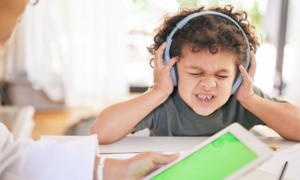Author(s): The Trevor Project
- Amy Green, PhD – Director of Research
- Samuel Dorison, LLM, MSc – Chief Strategy & Innovation Officer
- Myeshia Price-Feeney, PhD – Research Scientist
Published: Oct. 6, 2020
Report Intro/Brief:
“Black LGBTQ youth’s identification with multiple marginalized identities might make them more susceptible to negative experiences and decreased mental health. Both LGBTQ youth and Black youth report higher rates of poor mental health due to chronic stress stemming from the marginalized social status they have in U.S. society. However, very little research has quantitatively explored outcomes specific to Black LGBTQ youth. This report utilizes an intersectional lens to contribute to our understanding of the Black LGBTQ youth experience among a national sample of over 2,500 Black LGBTQ youth by highlighting and building upon many of the findings released from The Trevor Project’s National Survey on LGBTQ Youth Mental Health 2020 as they relate to Black LGBTQ youth.
There is significant diversity within the Black LGBTQ youth community.
- 31% of Black LGBTQ youth identified as gay or lesbian, 35% as bisexual, 20% as pansexual, and 9% as queer
- One in three Black LGBTQ youth identified as transgender or nonbinary
- More than 1 in 4 Black LGBTQ youth use pronouns or pronoun combinations that fall outside of the binary construction of gender
Black LGBTQ youth often report mental health challenges, including suicidal ideation.
- 44% of Black LGBTQ youth seriously considered suicide in the past 12 months, including 59% of Black transgender and nonbinary youth
- 55% of Black LGBTQ youth reported symptoms of generalized anxiety disorder in the past two weeks, including 70% of Black transgender and nonbinary youth
- 63% of Black LGBTQ youth report symptoms of major depressive disorder including 71% of Black transgender and nonbinary youth
- Self-harm was reported in 44% of Black LGBTQ youth, including 61% of Black transgender and nonbinary youth
- 49% of Black LGBTQ youth reported wanting psychological or emotional counseling from a mental health professional in the past 12 months, but not being able to get it
Our research identified many risk factors for Black LGBTQ youth mental health.
- 9% of Black LGBTQ youth reported having undergone conversion therapy, with 82% reporting it happened before age 18
- 35% of Black LGBTQ youth have experienced homelessness, been kicked out, or run away
- 38% of Black LGBTQ youth reported discrimination based on sexual orientation or gender identity
- 52% of Black LGBTQ youth reported discrimination based on their race or ethnicity
- 17% of Black LGBTQ youth reported that they had been physically threatened or harmed in their lifetime due to their LGBTQ identity
- 25% of Black transgender and nonbinary youth reported that they had been physically threatened or harmed in their lifetime due to their gender identity
Our research also identified high impact protective factors for Black LGBTQ youth.
- 82% of Black LGBTQ youth reported at least one supportive person in their life
- Black transgender and nonbinary youth who reported high family support had lower rates of attempted suicide
- 82% of Black LGBTQ youth report access to at least one in-person LGBTQ-affirming space.
- Black youth who had access to at least one LGBTQ-affirming space attempted suicide at 50% lower rates compared to Black LGBTQ youth without access.
Methodology Summary
A quantitative cross-sectional design was used to collect data using an online survey platform between December 2, 2019 and March 31, 2020. An analytic sample of 40,001 youth ages 13–24 who resided in the United States was recruited via targeted ads on social media. Youth were asked, “What best describes your race or ethnicity?” with options: Asian/Asian American, Black/African American, Hispanic or Latino/Latinx, more than one race or ethnicity, American Indian/Alaskan Native, Pacific Islander/Native Hawaiian, White/Caucasian, and another race or ethnicity (please specify). Youth who selected more than one race or ethnicity were asked a follow-up question to select with which races or ethnicities they identified. The current analyses include the 2,586 LGBTQ youth who either only identified as exclusively Black/African American or who identified as multiracial Black/African American, henceforth just referred to as Black unless otherwise specified.
Recommendations
Black LGBTQ youth report rates of mental health challenges comparable to or higher than the overall population of LGBTQ youth. These youth are confronted with risk factors that are not only similar to those of other LGBTQ youth but are also very different, such as racial discrimination. Black transgender and nonbinary youth are particularly susceptible. We must confront systemic barriers to Black LGBTQ mental health and well-being. For youth-serving organizations to be inclusive of Black LGBTQ youth, they must approach their work with the dual lenses of LGBTQ inclusion and anti-racism. Further, organizations working to support youth well-being must acknowledge that efforts to improve mental health cannot be “one-size-fits-all,” and, rather, must fit the needs of Black LGBTQ youth, both those that are similar to all LGBTQ youth and those that are unique. This is particularly true for Black transgender and nonbinary youth. Researchers must do more to prioritize the experiences of Black LGBTQ youth in order to inform best practices.”
>>> CLICK HERE to see all of Youth Today’s REPORT LIBRARY





























